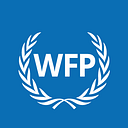New voices in evaluation — a Q&A with Joao Lima
A young professional in WFP’s Office of Evaluation shares his perspective on youth engagement in evaluation, advocacy for young professionals and why making a difference helps young people stay the course at WFP.
Tell us about WFP’s involvement in the #Eval4Action Youth in Evaluation initiative?
The #Eval4Action Youth in Evaluation Initiative recognized organizations that demonstrated efforts to engage young people meaningfully in the field of evaluation.
During the global launch of Youth in Evaluation Champion awards in July 2024, WFP was honoured as an Emerging Super Champion, highlighting our commitment to this cause. This recognition was based on data collected for the upcoming report, Mapping the Engagement of Young and Emerging Evaluators in UN Agencies, validated by the respective UN offices.
As a follow-up, the WFP Office of Evaluation (OEV) signed the Youth in Evaluation Manifesto to reinforce our commitment to advocate for, and enhance, the engagement of youth in evaluation.
What is the significance for WFP of signing the Youth in Evaluation Manifesto?
It shows how the WFP evaluation function maintains both a formal and practical engagement with various causes, such as the inclusion of young people in evaluation, in its pursuit of excellence. Through the manifesto, OEV will continue to undertake strategic and concerted efforts to build professional capacities of young and emerging evaluators. The Manifesto also recognizes that young people play a critical role in evaluation advocacy, to support our achievement of the Sustainable Development Goals.
How is OEV promoting youth in evaluation?
One initiative is the WFP Regional Bureau in Johannesburg’s partnering with CLEAR Anglophone Africa to develop a work immersion programme for six emerging evaluators. The participants graduated in November 2023. The initiative provided a more sustainable model for developing the skills and capacity of new evaluators entering the field. We’re also actively involved in the UNEG Young and Emerging Evaluators (YEE) working group.
In addition to supporting youth, the Office of Evaluation has also updated technical notes on integrating gender and disability inclusion into WFP evaluations and contributed to a special memorial issue of the African Evaluation Journal focusing on indigenous evaluation approaches. These initiatives underscore the Office’s commitment to equitable evaluation.
What are some of the hurdles that young professionals in the evaluation field face?
I believe the most significant bottleneck is access to job opportunities. There is a consensus among emerging evaluators that entry-level positions in this field are limited and highly competitive. Upon graduating, many of us encounter job descriptions requiring five to seven years of experience, which is quite discouraging.
Another challenge is the lack of opportunities for young professionals from the Global South. While some North countries can sponsor Junior Professional Officer (JPO) or Traineeship Programmes, these opportunities are more limited in the Global South. Emerging evaluators from the Global South often cannot afford to fund mid-term stays in the U.S. or Europe, where most international organizations are based.
Initiatives such as the #Eval4Action Youth in Evaluation initiative tackle many of these challenges in a collaborative approach with others.
What other solutions exist for organisations to meaningfully engage young evaluators?
As highlighted in the recent mapping of engagement commissioned by the YEE UNEG Working Group, several UN agencies are undertaking worthy initiatives. Currently, these efforts are isolated, and there is no common practice across the system, but the Working Group is planning different approaches to advocate for this.
Some of initiatives include involving youth in the evaluation process (through steering committees, and youth advisory groups), providing scholarships for YEEs to attend conferences, forming partnerships with universities and think-tanks to offer sessions on evaluation practices, and recruiting candidates for internships. Another promising initiative is the launch of positions through the United Nations Volunteers Monitoring and Evaluation Joint Programme of UN Agencies.
Most importantly, UN agencies need to give voice to young professionals and embrace their perspectives so that ideas of inclusiveness, diversity, and equity can be actively implemented.
What makes WFP a great place to work for young professionals?
I started my career in the Mozambique country office and in my first week I heard one of the most powerful sentences as a humanitarian. While the delegations started to communicate evacuation plans for their nationals, the management team stated: “They go. We stay and help”. In that moment, I felt the mandate of the organization and the commitment to fight hunger in the world during crises, natural disasters and conflicts. This is a strong motivation to most of the people in the organization and this is why we are determined to give our best, bring innovative tools and provide rapid support. Perhaps this is the spirit that keeps many of us motivated, as we are consistently driven by the pursuit of excellence, innovation and commitment.
